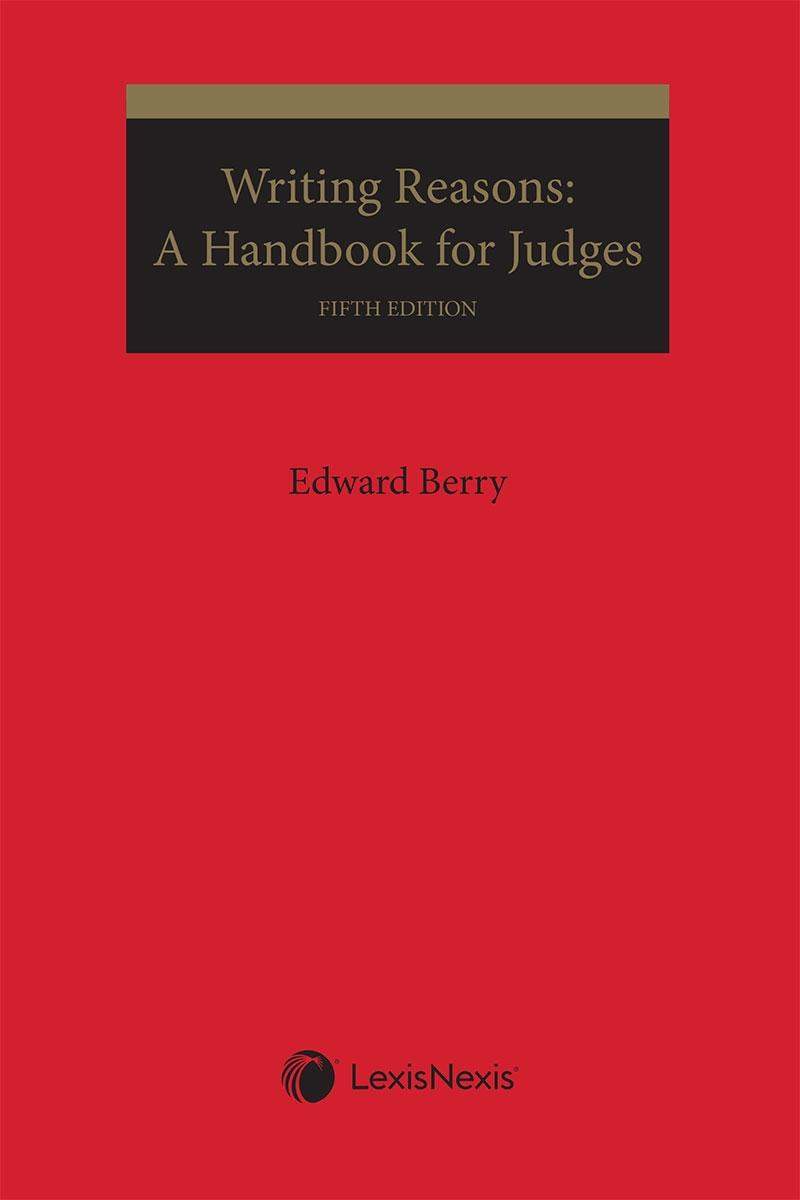Description
“Writing Reasons deserves a wider audience. Administrative tribunal members are obvious candidates for that audience: from the point of view of sheer numbers alone, their decisions affect the day-to-day lives of many more people than decisions of courts, and Berry’s advice transposes well to the writing of administrative decisions.
Berry also makes the case that judges who give mostly oral judgments can benefit from some of the ideas in the book, and provides advice specifically for them. Lawyers who diligently craft written submissions would also do well to imagine themselves in the judge’s role and revise with that role in mind; Writing Reasons would be a good place to start.
Finally, law schools, which traditionally have focused on other forms of legal writing –research memos, opinion letters, factums, pleadings, and essays – might want to consider the benefits of teaching judgment writing. Using the third edition of Writing Reasons, I did that for the first two years in an upper-year seminar course on the written judgment – and I have recently continued the practice with the fourth edition of Berry’s excellent book.”
Reviewed by John C. Kleefeld (4th Edition)
Professor and Dean of Law, University of New Brunswick
To purchase the French version of the 5th Edition, please visit the Les Éditions Thémis website.
Writing Reasons: A Handbook for Judges, 5th Edition is a helpful guide for adjudicators on how to comprehensively structure and write judgments. Written by Edward Berry, an experienced lecturer and well-recognized seminar leader on the subject of writing judgments, this text is unique among works on legal writing in its focus on judgments, about which it offers guidance not only to adjudicators but to lawyers submitting written materials to the court.
This book is particularly useful as it provides:
- Practical content devoted to the art of effectively writing judgments
- Insightful commentary on structure, grammar, and writing for your audience
- Tips for making writing both clear and personal
- A series of exercises designed to test your ability to put into practice the principles of judgment writing, as well as an Appendix containing suggested “answers” to these exercises
What’s New In This Edition
- Significant revisions to Chapter 5: Words and Sentences, which extends and re-works material that had previously appeared in Chapters 6 and 7 of the previous edition
- Significant revisions to Chapter 1: Introductions, which includes new examples of organizational variety; Chapter 2: Organization, which expands the previous treatment of issue-driven structures; and Chapter 7: Widening the Audience, which adds new examples
- The reading list from the previous edition has been expanded and updated as Appendix 2: Additional Resources
Who Should Read This Book
- Judges and members of administrative tribunals who need a reliable resource that will help them write well-structured, clear, and concise judgments
- Litigation lawyers who will find this guide essential to determining what judges and tribunals are looking for in pleadings and other court documents
- Law libraries that want to add this volume to their collection to assist lawyers, judges, students, legal writing professors, and tribunal members
Edward Berry is a retired Professor of English at the University of Victoria where he taught Shakespeare and served terms as Chair of the Department of English, Dean of Humanities, and Faculty Representative on the Board of Governors. Dr. Berry has also pursued a career in judicial and legal education. He has organized and participated in numerous programs on judicial writing throughout Canada and at all levels of the judiciary, including the Supreme Court of Canada. Internationally, he has delivered programs to judges in Australia, Barbados, New Zealand, the People’s Republic of China, Singapore, Scotland, and the U.S. The first four editions of Writing Reasons: A Handbook for Judges have sold more than 6,000 copies.


Reviews
There are no reviews yet.